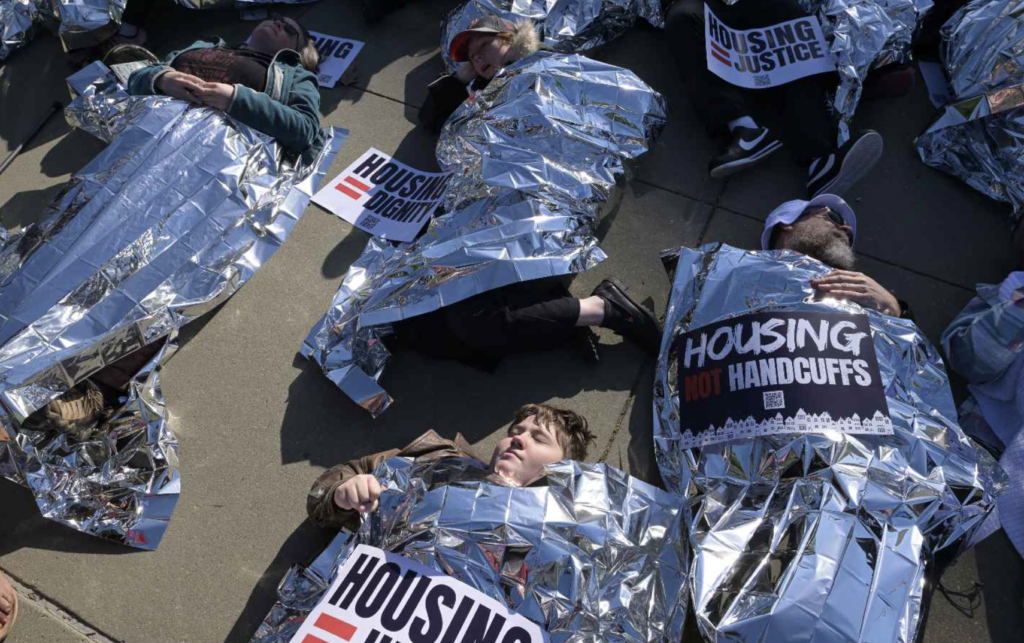June 12, 2024
The Supreme Court Could Make Encampment Sweeps Even More Dangerous
By Finn Cooley
Unhoused people face significant health risks from encampment sweeps. Grants Pass v. Johnson threatens to make them much more common.

(Matt McClain / Getty)
Late last March, Christina Del Santo pitched a tent on a marshy plot of land by Connecticut’s Quinnipiac River. She calls the encampment—where she lives with two other people—one of the most comfortable situations she’s found. After becoming unhoused four years ago during the pandemic, she stayed in a shelter, but quickly moved out after being physically assaulted. Last fall, she lived in a tent until the parking authority evicted her. In the winter, she slept in a camper, but it was eventually towed, and she didn’t have the money to reclaim it.
Del Santo, who grew up in the Amity neighborhood of New Haven, moved frequently throughout her childhood to escape the abuse of her biological father. Housing insecurity has been one of the only stable fixtures of her life. “It’s oddly normal for me,” she says. “It sucks, but I’ve always been able to couch surf, or find something.”
Last spring, while visiting the McDonald’s she frequents to charge her phone, Del Santo met two people who invited her to join their encampment along the the I-91 highway. She quickly said yes.


